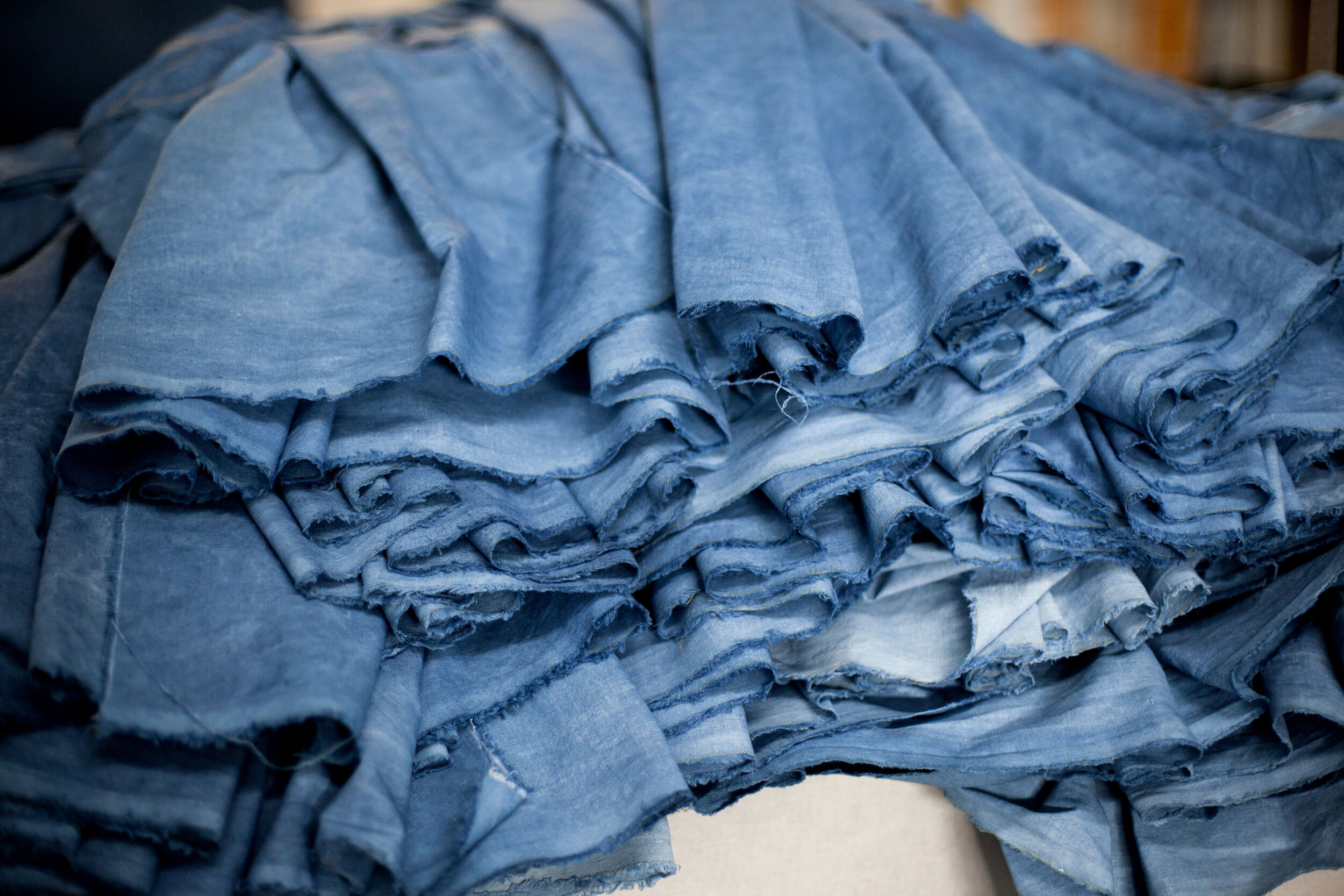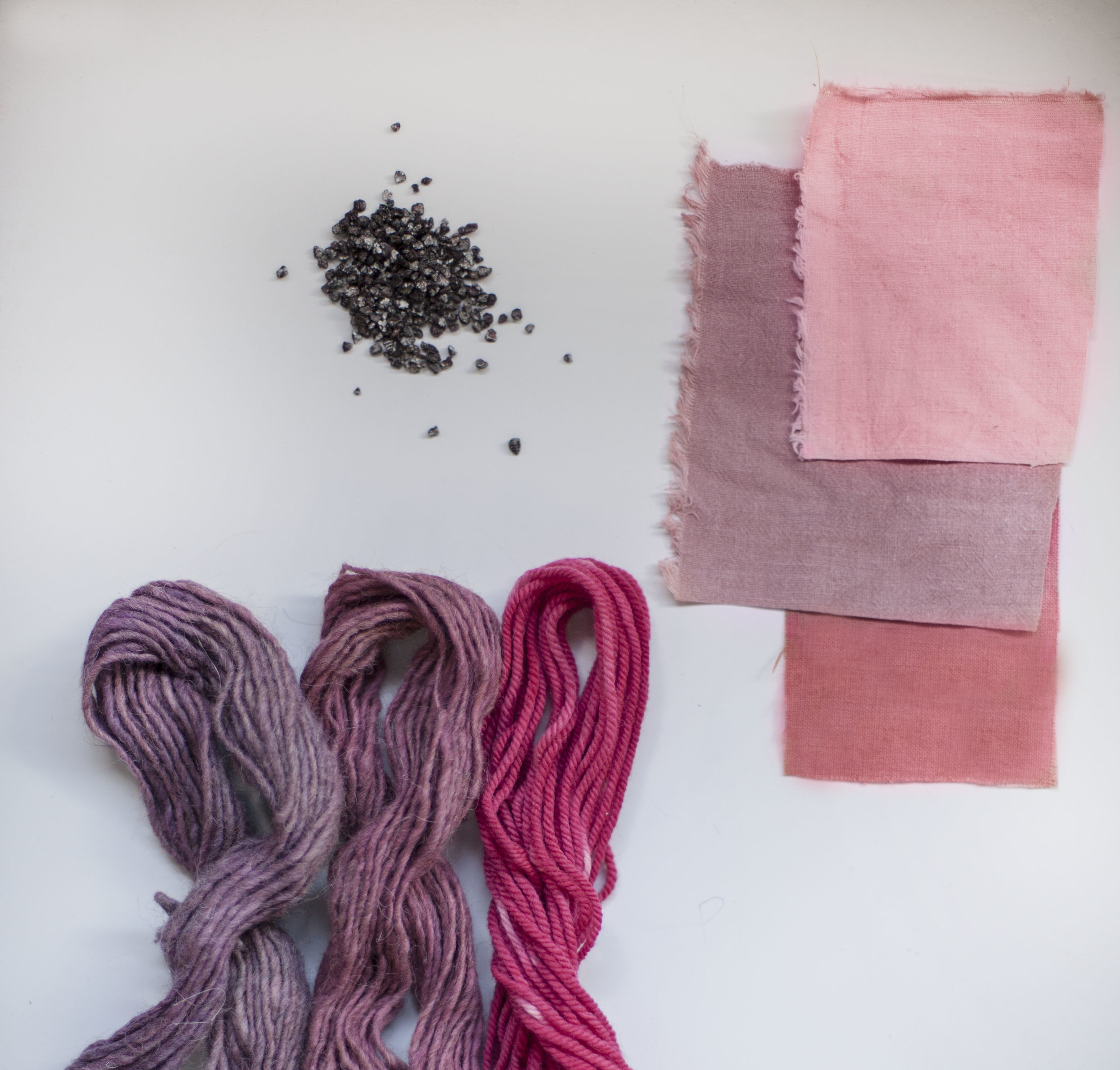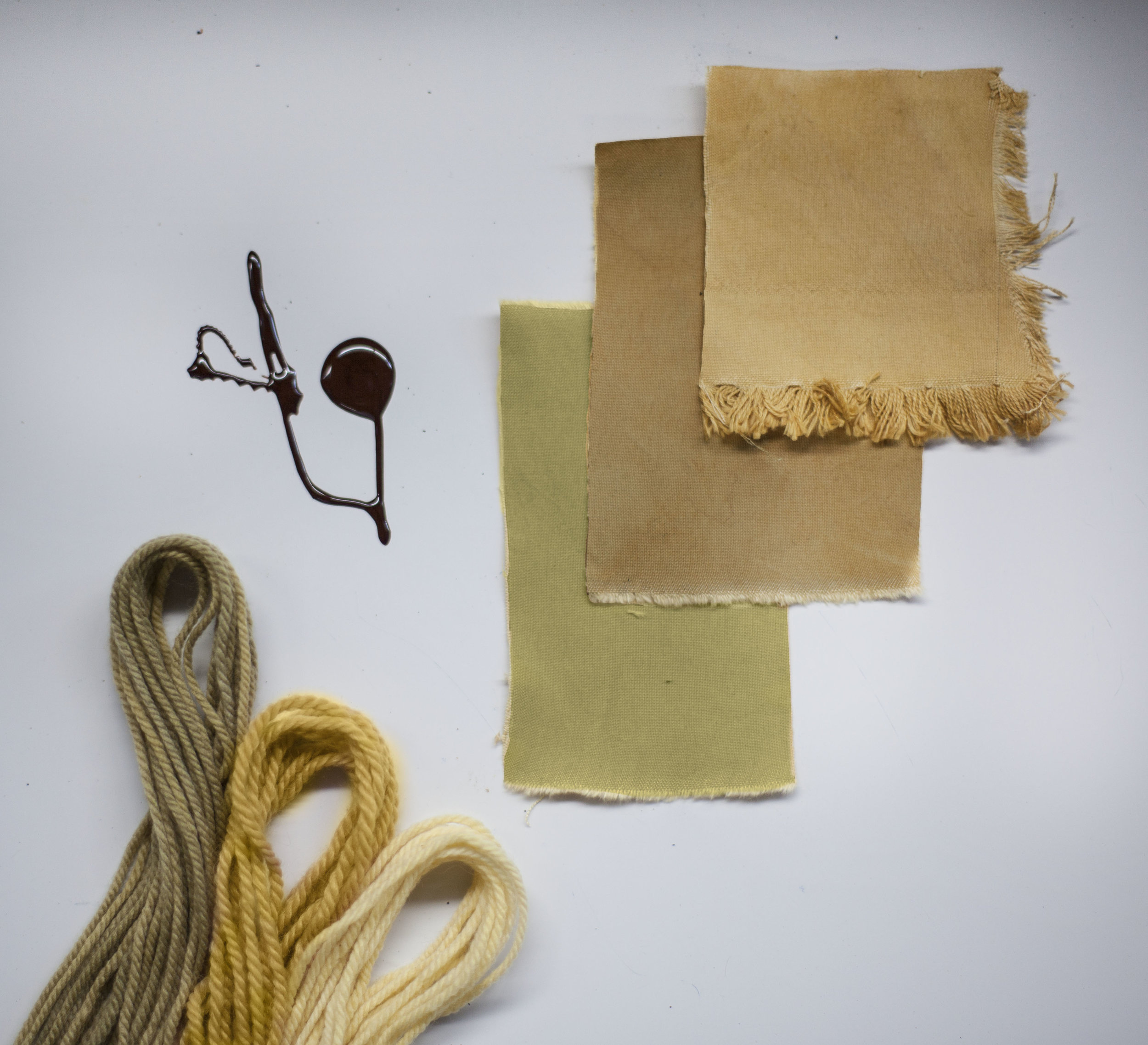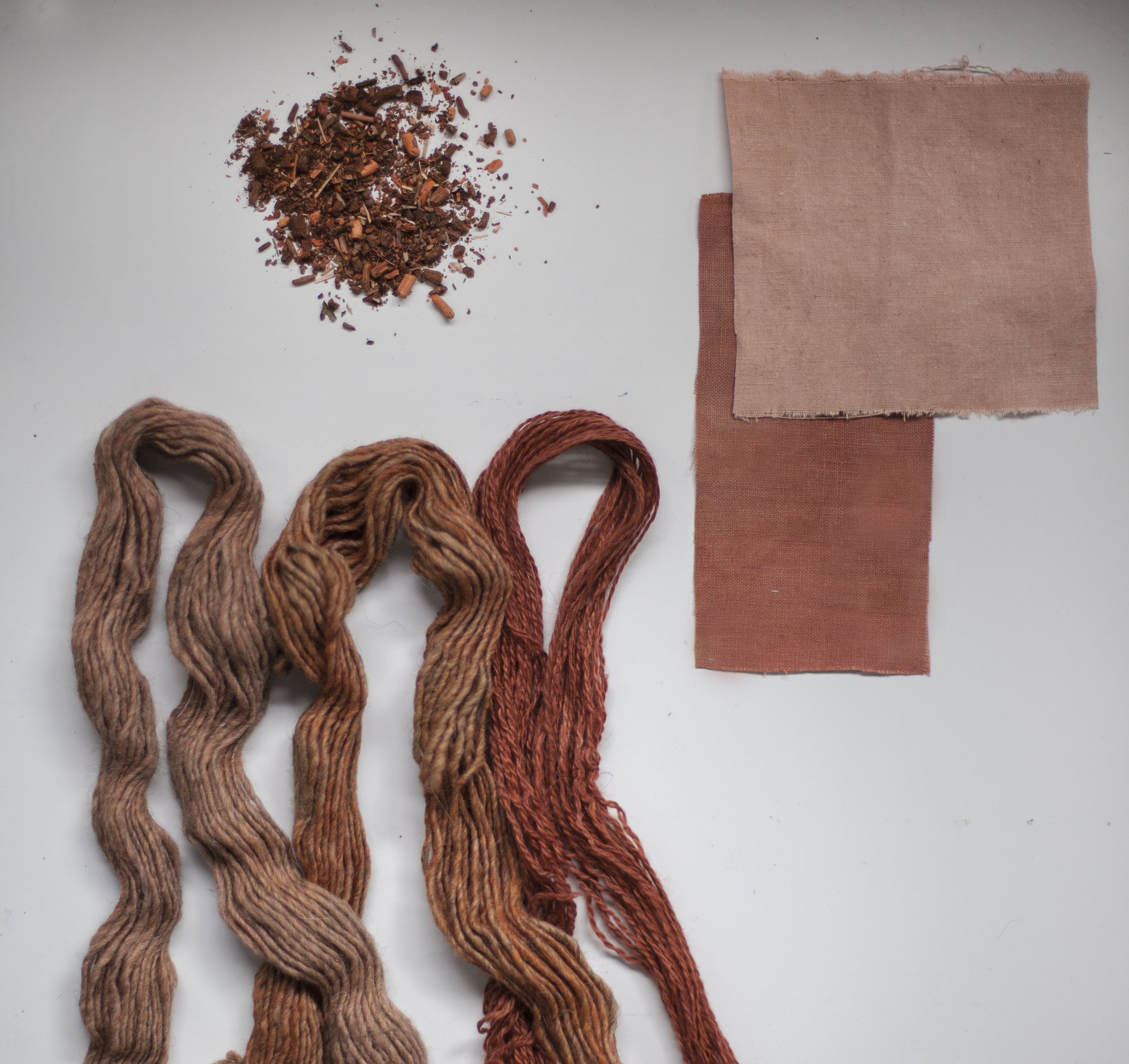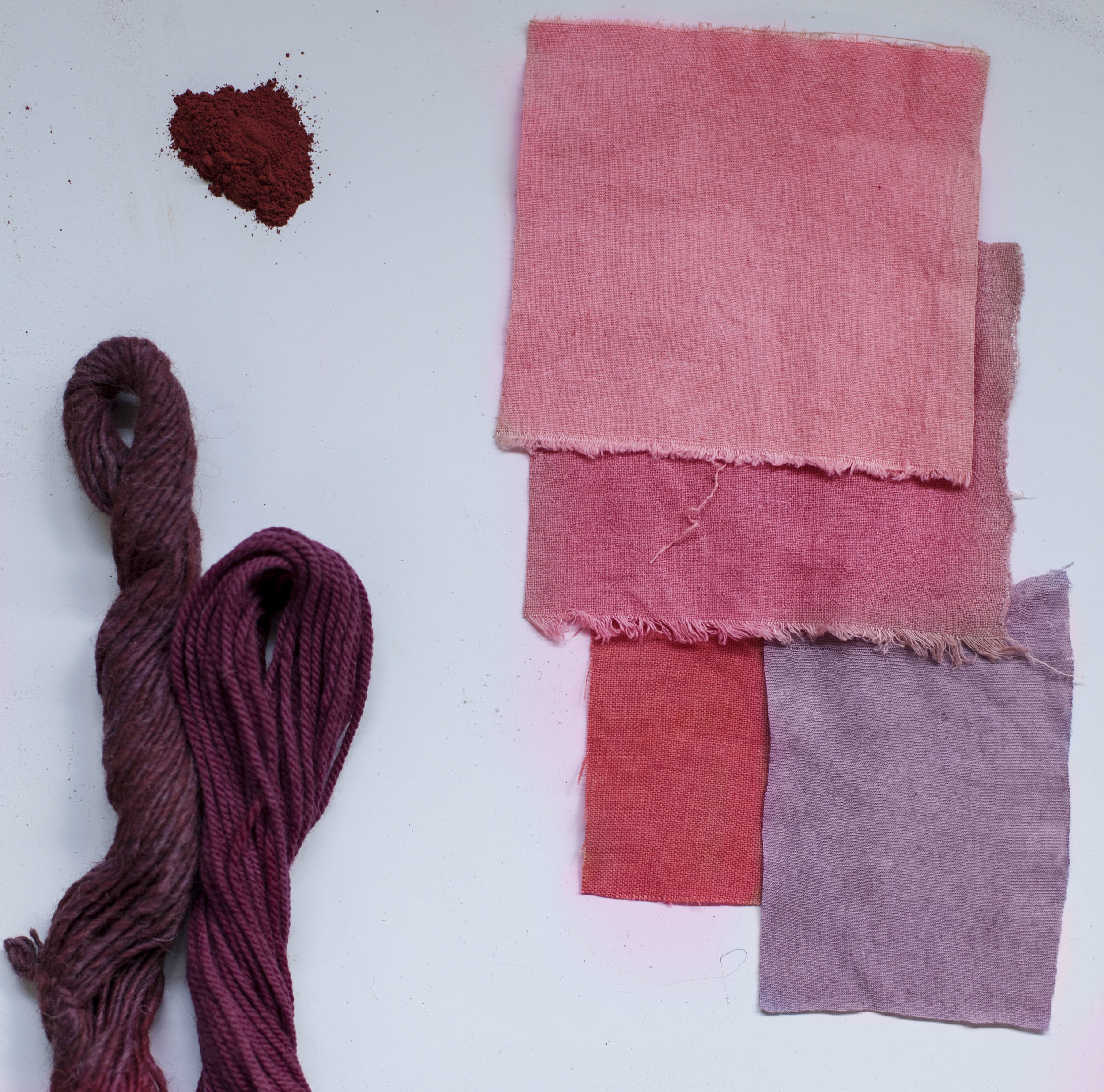Our service
Natural dyes offer a more sustainable production option to businesses selling textile based products. The natural dye studio at Green Matters works with makers, designers, and production teams to produce the color they desire from plant materials. Every fiber accepts botanical dye in different ways, making every dye lot we produce 100% unique. We partner with a variety of mills, farms and other textile manufacturing businesses to help clients who want to source sustainable fibers and finishing services.
To learn more about our new custom dye service for individuals, please click below:
The dyeing of textiles with natural dyes is a popular homecraft, and our friends at Botanical Colors make excellent dyes for home use. Green Matters is a professional fabric dyeing service, here to help our clients achieve beautiful colors on their products at scale.
Our dye house offers services for:
garment dyeing (where we dye clothes like dresses, shirts, jeans and more)
piece dyeing (a fabric dyeing service where we process panels of material
yarn (where we dye skeins of yarns like wool and cotton)
Services include:
even immersion dyeing
industrial tie dye
shibori
bundle dyeing
ombre
In-House Samples:
In order for you to get an idea of the look and hand feel of natural dyes, we will send a small booklet of in-house swatches. Included is a variety of different dye applications and fibers. You can purchase these here.
Custom Samples:
Each type of fiber takes natural dyes a little differently. It is important that we begin developing a color palette on the same fabric or fiber you will be using in production. For each dye you are interested in, we will process 3-4 swatches in our dye lab demonstrating the colors that are achievable on your fiber.
Yardage: If you would like to have yardage dyed or piece dyeing, after swatching we dye 1-10 yards of sample yardage. This allows us to understand how much the fabric will shrink in the dye process, and give the designer enough to produce sample garments.
Yarn: Skein dyeing is how we process yarn. After swatching colors, we dye one 100- gram skein in each color desired.
Garment Dyeing: If the designer wants dyeing to be the last step in manufacturing, garment dyeing is the way to go. After swatching, we process 1 garment in each style being dyed. This allows us to measure shrinkage, and allows for the designer to account for ease in pattern making.
Production:
Our lead times vary. Please allow 4 weeks for swatches or sample yardage. Typically, amounts of 1000 yards or 500 pounds require more than 4 weeks. For larger orders, please inquire below.
Our dye service includes:
A pre-wash, called scouring
A pre-mordant bath using metal salts and minerals to help the dye bind to the fiber
Dye bath
Washing
Finishing (Drying, packaging)

